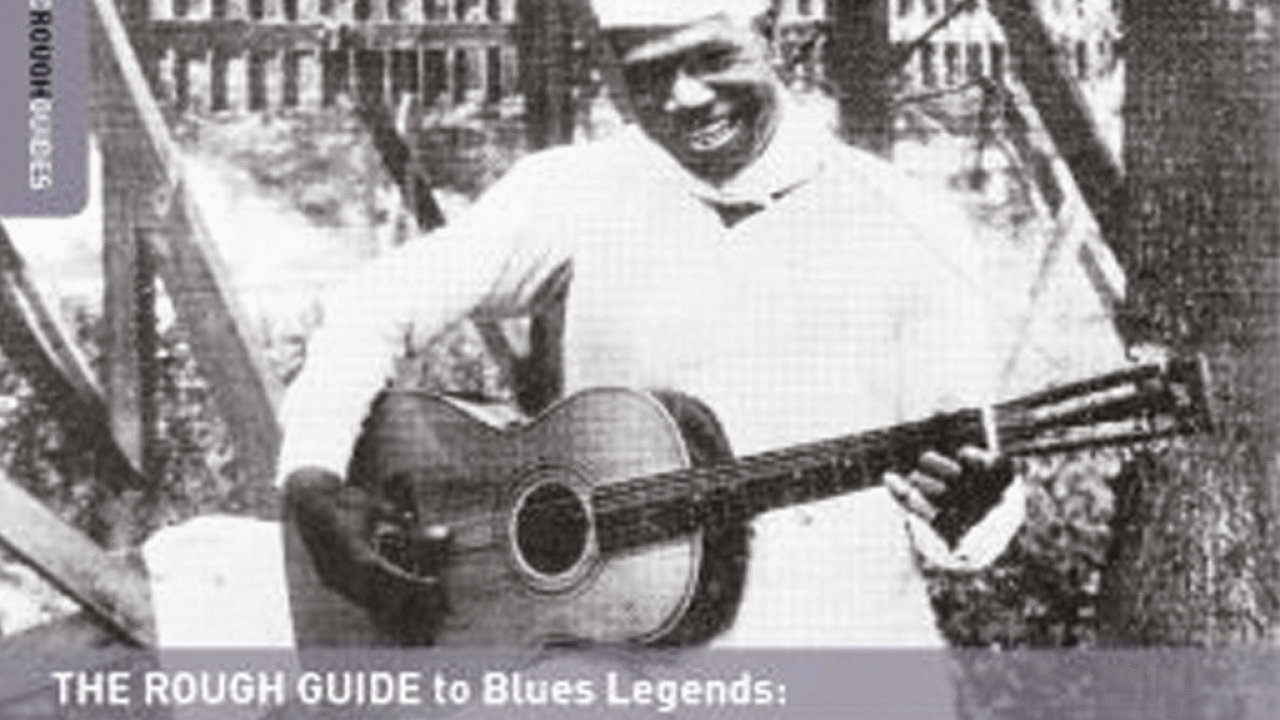Barbecue Bob, represented in The Rough Guide To East Coast Blues by one track, has his own Rough Guide, mapping the landscape of his work from his 1927 debut Barbecue Blues to his last recordings in 1930 with Weaver and Buddy Moss, She Looks So Good and She’s Coming Back Some Cold Rainy Day.
The selection takes in narrative blues, hokum numbers and even a comedy routine with his supposed brother, Charley Lincoln. Bob was one of the most distinctive of early practitioners of the 12-string guitar, alternating an almost banjo-like strumming with high-register slide figures.
The compilation omits Mississippi Heavy Water Blues, Bob’s best-seller about the 1927 flood, but it demonstrates his awareness of other contemporary issues in Chocolate To The Bone, a race-pride song that alludes to an earlier record on the same theme by Lillian Glinn, and Goin’ Up The Country, with its reference to the black newspaper The Chicago Defender. They’re balanced by pieces like It Just Won’t Quit and Doin’ The Scraunch, cheerful verse-and-refrain numbers cut from the same pattern as It’s Tight Like That, and a characteristic accompaniment to singer Nellie Florence in Midnight Weeping Blues.
The selection takes in narrative blues, hokum numbers and even a comedy routine with his supposed brother, Charley Lincoln. Bob was one of the most distinctive of early practitioners of the 12-string guitar, alternating an almost banjo-like strumming with high-register slide figures.
The compilation omits Mississippi Heavy Water Blues, Bob’s best-seller about the 1927 flood, but it demonstrates his awareness of other contemporary issues in Chocolate To The Bone, a race-pride song that alludes to an earlier record on the same theme by Lillian Glinn, and Goin’ Up The Country, with its reference to the black newspaper The Chicago Defender. They’re balanced by pieces like It Just Won’t Quit and Doin’ The Scraunch, cheerful verse-and-refrain numbers cut from the same pattern as It’s Tight Like That, and a characteristic accompaniment to singer Nellie Florence in Midnight Weeping Blues.
The selection takes in narrative blues, hokum numbers and even a comedy routine with his supposed brother, Charley Lincoln. Bob was one of the most distinctive of early practitioners of the 12-string guitar, alternating an almost banjo-like strumming with high-register slide figures.
The compilation omits Mississippi Heavy Water Blues, Bob’s best-seller about the 1927 flood, but it demonstrates his awareness of other contemporary issues in Chocolate To The Bone, a race-pride song that alludes to an earlier record on the same theme by Lillian Glinn, and Goin’ Up The Country, with its reference to the black newspaper The Chicago Defender. They’re balanced by pieces like It Just Won’t Quit and Doin’ The Scraunch, cheerful verse-and-refrain numbers cut from the same pattern as It’s Tight Like That, and a characteristic accompaniment to singer Nellie Florence in Midnight Weeping Blues.

